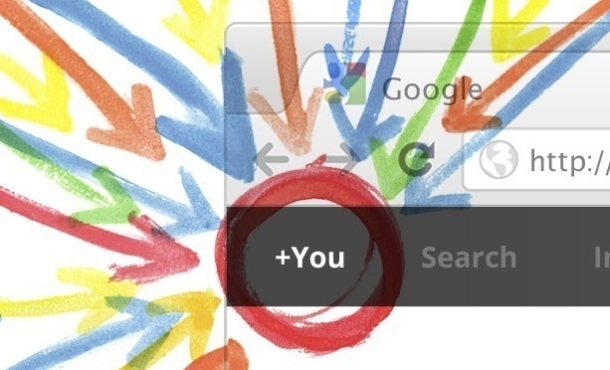Google may still be raking in the profits, but the mojo behind Gmail, Chrome, News, Translate, and Docs has started to fade in the face of stiffer competition.

Is Google+ an asset or a distraction?
(Credit:
Screenshot by Ben Parr/CNET)
Google’s empire is under direct assault from Facebook. Its big weapons — Search, AdWords, and AdSense — are not as potent as they once were, thanks to the rise of social media.
This frightens Google immensely. Facebook is now the Web’s top destination, and it’s quickly becoming the platform that powers the Web. It even threatens Google’s core advertising business. If Facebook were to ever launch a social version of AdSense, it could snap up advertisers and cause a serious disruption to Google’s cash cow.
Google isn’t taking the Facebook threat lying down, though. That’s why co-founder Larry Page took over as CEO last year to clean house. Since then, Google has shuttered countless products, including Aardvark, Google Health, and one of my personal favorites, Picnik.
More importantly, Google has developed a social weapon of its own — Google+. The company is betting the farm on its new weapon, hoping that it will make it all of the company’s products more relevant and useful in the social era. The result has been the creation of products such as the +1 Button, Google+ Hangouts, and Search plus Your World (Google’s attempt to socialize its search results).
At first, it looked as if Google+ would become a smashing success. It took the company only seven months to reach 90 million users, and the social site received generally positive reviews from the press. But in recent months, the media has turned against Google’s social strategy and ramped up its criticism of the company as a whole.
“The problem is, I think Google has failed to understand that along the way, it has become just another big company,” Marketing Land and CNET contributor Danny Sullivan stated in a recent article. “It’s a big company that makes mistakes, like any big company will do. But unlike most big companies, the entire ‘Don’t Be Evil’ mantra it created for itself years ago has given it farther to fall.”
The press isn’t the worst of its worries, though. Earlier this week, former Google engineer James Whittaker wrote a scathing blog post slamming his former employer:
“The Google I was passionate about was a technology company that empowered its employees to innovate,” Whittaker writes. “The Google I left was an advertising company with a single corporate-mandated focus.”
Whittaker goes on to attack Google’s efforts to compete with Facebook in social. He says in his post that Google claimed that sharing was broken, and that it was up to them to fix it. “As it turned out, sharing was not broken,” Whittaker states. “Sharing was working fine and dandy, Google just wasn’t part of it.”
It’s important to note that Whittaker now works for Microsoft — a fact that I actually learned from a Google+ post in one of my searches. It was as if Google knew I was trying to dig up dirt on it.
This is the reason I simultaneously admire and am disappointed in Google. The search giant had no choice but to create Google+ and go social — it could not cede the battle for social to Facebook and simply fade into obscurity. It had to fight back, even if the battle was already a lost cause. Google’s fighting spirit is admirable.
But I just can’t make the argument that Google+ has made my Google experience better. Sure, sharing from Gmail or Google Maps is nice, but my friends simply aren’t on Google+ — they’re on Facebook. And I absolutely despise Search plus Your World, because it has made my searches less relevant and less useful. It’s a terrible user experience overall.
When you change leaders and restructure your management, you’re going to have upset employees and a wave of departures — it’s often a necessary sacrifice that has to be made to turn a company around or, in Google’s case, prevent stagnation. And overall, the Google employees I’ve chatted with are very happy to have Page back in the driver’s seat, cutting the unnecessary fat that made Google slow to react to the social networking phenomenon in the first.
Still, it feels like the magic that helped create Gmail, Chrome, News, Translate, and Docs has vanished in the Google+ void. I fear that Google has become obsessed with chasing Facebook’s success, when its resources would be better spent developing and launching bolder innovations that actually change the way we use the Web.
That magic is what made Google into one of the world’s greatest companies. Without it, Google’s just another stodgy company trying to protect its weakening empire.
Article source: http://news.cnet.com/8301-33617_3-57396938-276/has-google-lost-its-magic/
